REPORT
The UAE’s Sustainable Aviation Transition
Progress and innovation since COP28
The UAE’s Sustainable Aviation Transition
Progress and innovation since COP28
This report explores the UAE’s progress in aviation decarbonisation since COP28, highlighting advances in SAF, electric and hydrogen propulsion, airport sustainability, and supportive policy frameworks.
The UAE’s Sustainability Transformation
The UAE has for decades been associated with aviation excellence, home to world-leading airlines and airports that have redefined global connectivity, and served as a bridge between East and West, and North and South.
Today, the nation is leveraging that same ambition and expertise to pioneer a new chapter: sustainable aviation that balances environmental responsibility with continued growth and economic prosperity.
The decision to host COP28 in Dubai in November-December 2023 marked a pivotal moment for the UAE’s climate leadership. This global event, attended by world leaders, catalysed a comprehensive sustainability transformation across the nation’s key economic sectors, with aviation among its strategic priorities.
The commitments made during COP28 have since translated into tangible action, with billions of dollars in investment, multiple major projects launched or accelerated, and regulatory frameworks established to support long-term decarbonisation.
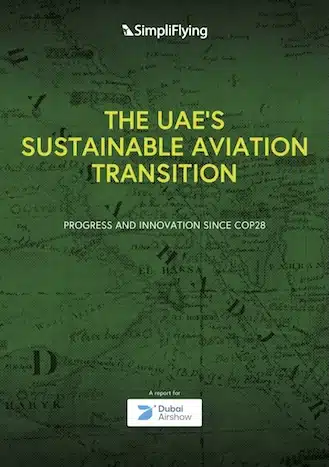
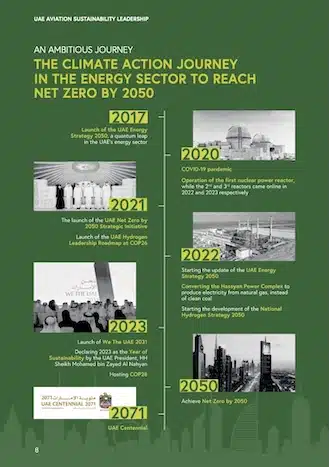
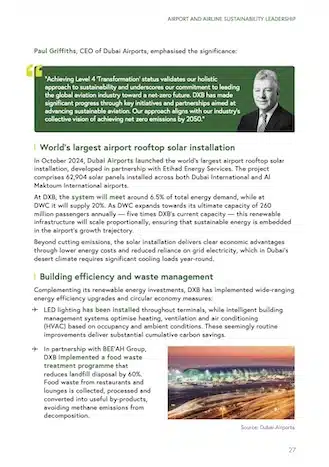
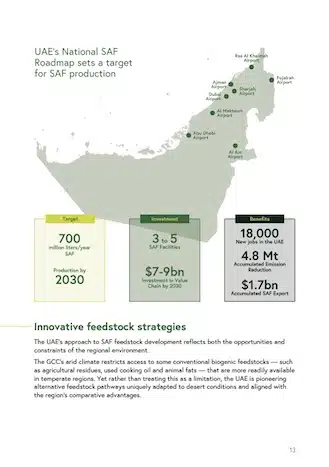
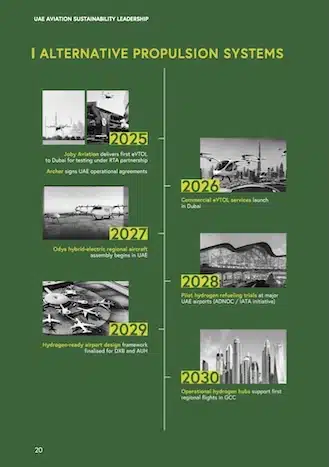
Key takeaways
Why aviation matters for the UAE
Aviation is a cornerstone of the UAE’s economy, and contributes 18.2% to the national economy, generating around US$92 billion in revenue and supporting nearly one million jobs.
Building a regional SAF hub
The UAE’s National SAF Roadmap sets a target of 700 million litres of annual production by 2030, positioning the nation as both a regional supplier and global exporter
Electric and hydrogen propulsion systems
Electric vertical takeoff and landing (eVTOL) aircraft are preparing for commercial operations in Dubai by 2026, while partnerships between energy giants and aviation pioneers are accelerating the development of hydrogen-powered aircraft.
Airport and airline sustainability
Dubai International Airport has achieved the Airport Carbon Accreditation Standard Level 4 ‘Transformation’ status, placing it among the top 5% of airports worldwide.
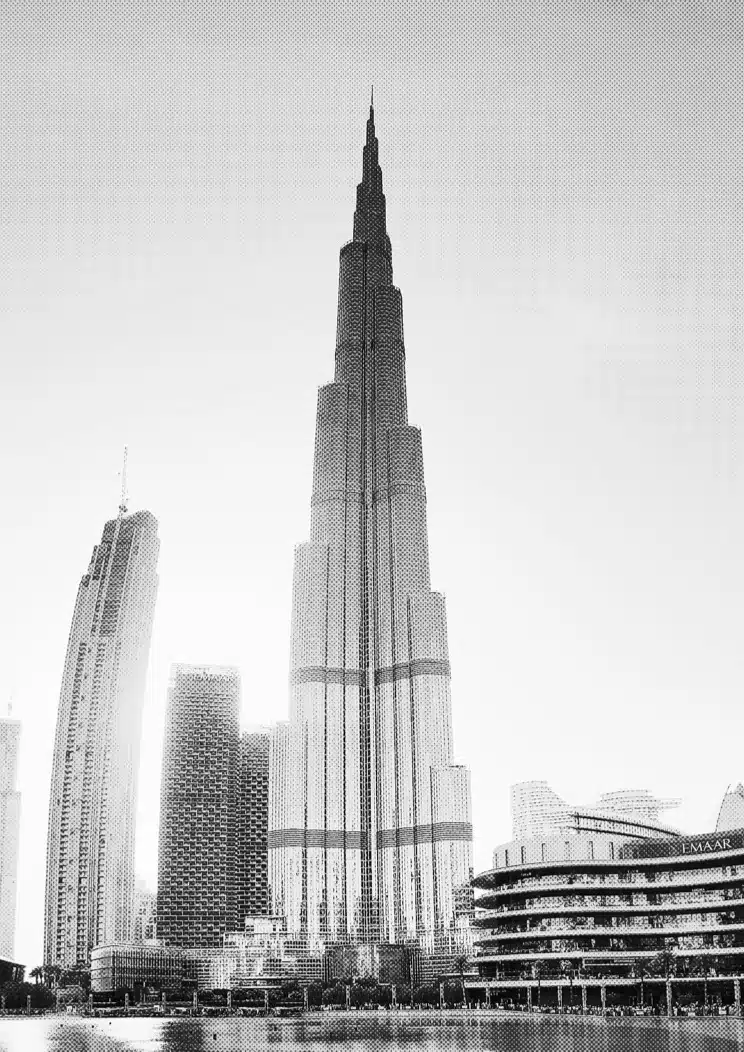
IN PARTNERSHIP WITH
